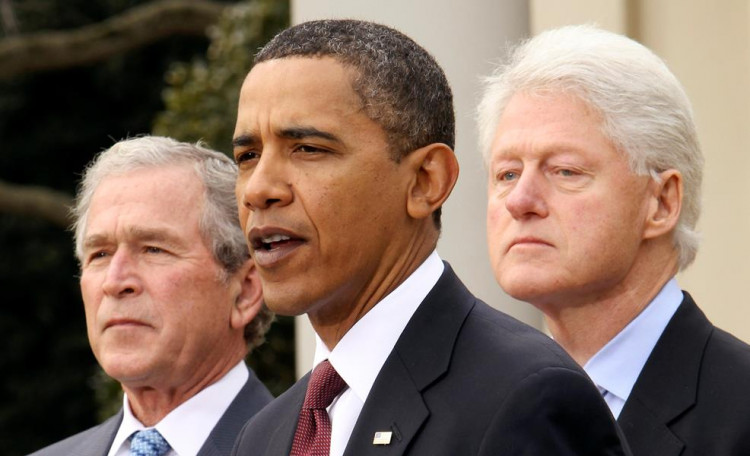In the wake of President Joe Biden's surprising decision to exit the 2024 presidential race, former President Barack Obama has notably withheld his endorsement of Vice President Kamala Harris, citing doubts about her ability to defeat Donald Trump. This hesitation underscores a significant rift within the Democratic Party as it faces the challenge of unifying behind a new candidate.
According to sources close to the Biden family, Obama is deeply concerned about Harris' competency and electoral viability. "Obama's very upset because he knows she can't win," the source told The New York Post. "He believes she's incompetent - the border czar who never visited the border, advocating that all migrants should have health insurance. She cannot navigate the landmines that are ahead of her."
Biden, 81, announced his withdrawal following a poorly received debate performance against Trump in Atlanta, an event insiders claim was part of a deliberate strategy to push him out of the race. Despite this, Biden's immediate endorsement of Harris took many, including Obama, by surprise. "Obama was shocked when Joe endorsed her," the source added.
The former President's concerns extend to Harris' debating skills, especially in a head-to-head with Trump. "Wait until the debate... She can't debate. She's going to put her foot in her mouth about Israel, Palestine, Ukraine. She's going to say something really stupid," the insider predicted.
Obama had initially hoped to see Arizona Senator and former astronaut Mark Kelly rise to the top of the Democratic ticket at the upcoming National Convention. However, Biden's swift endorsement of Harris disrupted these plans, leaving Obama "furious" and hesitant to align himself with the party's new direction.
Rod Blagojevich, the disgraced former governor of Illinois, suggested that Obama played a crucial role in orchestrating Biden's exit from the race. "Without Obama, Biden is still the Democratic nominee. Obama was the conductor leading the orchestra that convinced Biden to step aside," Blagojevich told The New York Post.
The tension between Biden and Obama is not new. Reports suggest that Obama previously discouraged Biden from running for the presidency in 2016 to clear the way for Hillary Clinton. Biden himself acknowledged this, telling The New York Times that Obama was "not encouraging" about his potential candidacy at the time.
Blagojevich further criticized Obama's influence within the Democratic Party, likening it to a "Chicago ward boss from the shadows in the back room," with a significant impact on political decisions. This influence, Blagojevich argued, has been a point of contention and strategic maneuvering within the party.
As the Democratic National Convention approaches, Harris has secured the support of a majority of delegates, virtually assuring her nomination. An Associated Press survey indicated that Harris had the backing of 2,538 delegates, well above the 1,976 needed. Democratic National Committee Chairman Jaime Harrison confirmed that the party would finalize its nominee by August 7, though delegates could still change their minds before the official vote.
Biden, addressing the nation for the first time since his withdrawal, emphasized the importance of unity and the need for a new generation of leadership. "I believe my record as president, my leadership in the world, my vision for America's future all merited a second term, but nothing - nothing - can come in the way of saving our democracy. That includes personal ambition," Biden said. "So I've decided the best way forward is to pass the torch to a new generation."
Biden's endorsement of Harris was clear and unequivocal. "My very first decision as the party nominee in 2020 was to pick Kamala Harris as my Vice President. And it's been the best decision I've made," he stated. "Today I want to offer my full support and endorsement for Kamala to be the nominee of our party this year. Democrats - it's time to come together and beat Trump. Let's do this."





